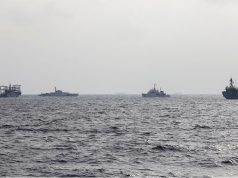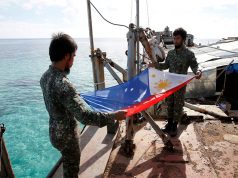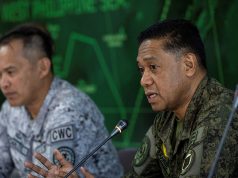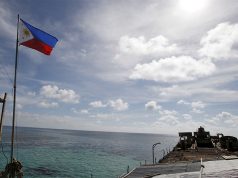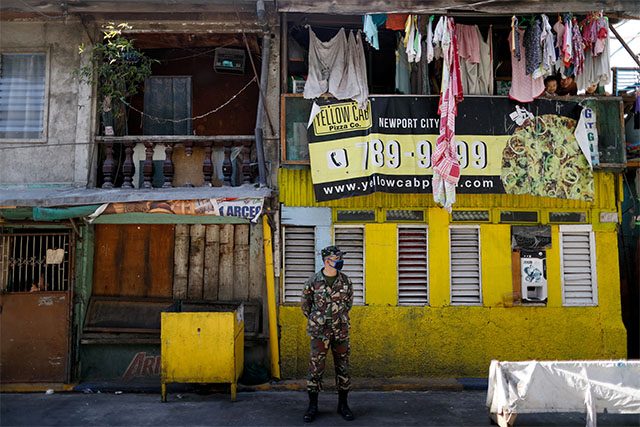
MANILA — Philippine authorities and police will carry out house-to-house searches for COVID-19 patients to prevent wider transmission, a minister said on Tuesday, amid soaring death and infection numbers and some areas returning to a stricter lockdown.
Interior Minister Eduardo Año urged the public to report cases in their neighbourhoods, warning that anyone infected who refused to cooperate faced imprisonment.
The tough approach comes during a week where the Philippines recorded Southeast Asia biggest daily jump in coronavirus deaths and saw hospital occupancy grow sharply, after a tripling of infections since a tough lockdown was eased on June 1 to allow more movement and commerce.
“We don’t want positive patients to stay home in (self) quarantine especially if their homes don’t have the capacity,” Ano told a news conference.
“So what we will do … is to go house-to-house and we will bring the positive cases to our COVID-19 isolation facilities.”
The strategy is a departure from previous advice for positive cases with mild symptoms to self-isolate.
Justifying the searches, Ano cited a 2019 law on disease reporting and surveillance. Interior Undersecretary Jonathan Malaya said tracking down positive cases was necessary because some had absconded.
The plan will likely alarm human rights groups battling what they say is impunity for abusive police who have systematically targeted poor communities in a bloody war on drugs, as noted in a recent United Nations report. Police have rejected that.
Police are accused of being heavy handed during the pandemic, including arrests for minor infringements and reports by activists of children killed while violating curfews.
“How is the government going to ensure that the rights of Filipinos are respected and protected with this new approach?” said Phil Robertson, Human Rights Watch deputy Asia director.
“Given that Philippine law enforcers have some of the most checkered COVID responses in the world in terms of human rights, this certainly raises fears.”
Police did not immediately respond to a request for comment.
There have been 57,545 Philippine coronavirus infections, of which 1,603 were deaths. —Reporting by Karen Lema and Neil Jerome Morales; Editing by Martin Petty




